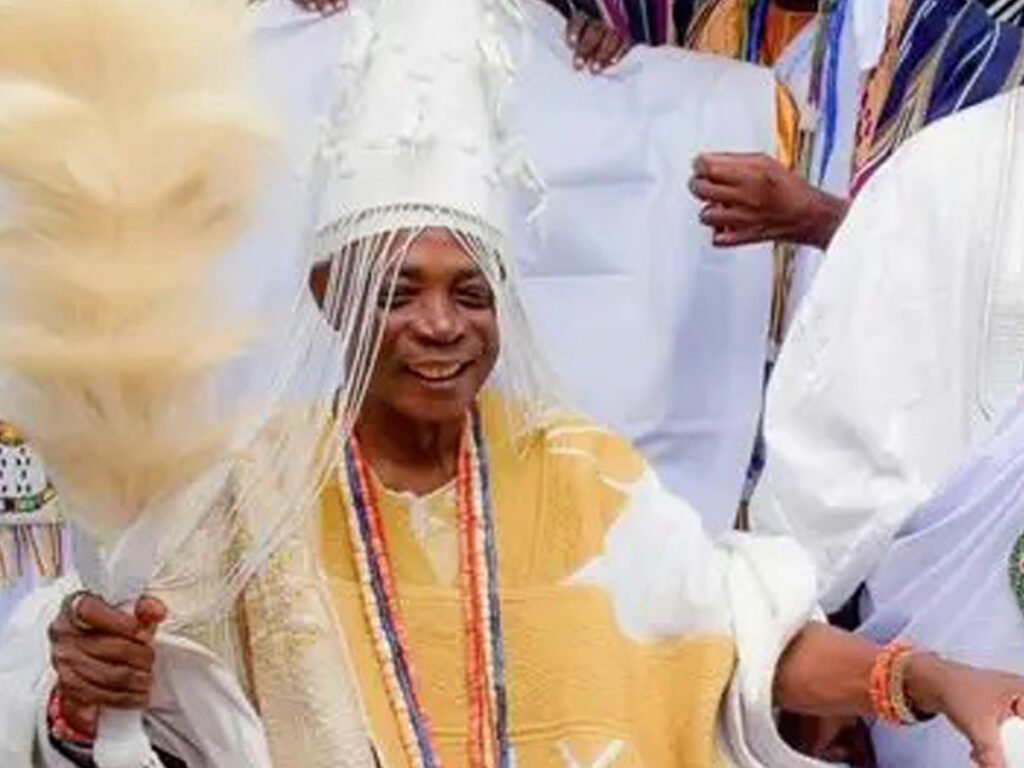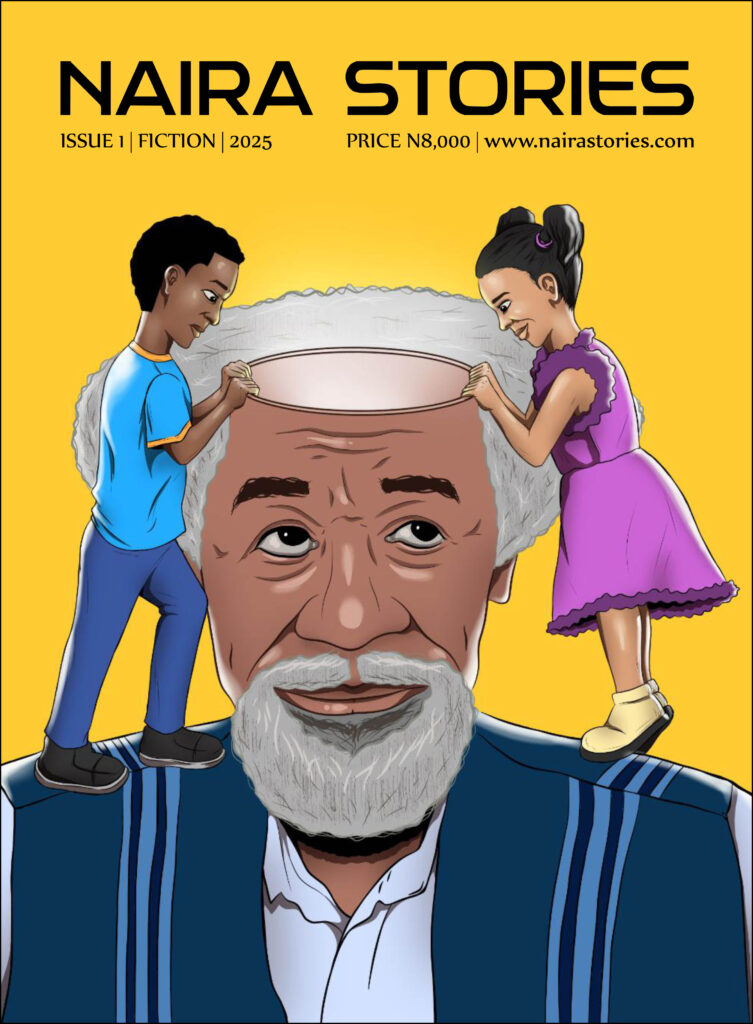Game of Thrones, the first in the series of A Song of Ice and Fire written by American writer George R. R. Martin and published in 1996, is a fantasy realism novel set between 298 AC and 305 AC. Although I have not read Game of Thrones, I have watched and rewatched the television series adaptations of the book, and the concepts of royalty, power, and leadership it portrays fascinates me.
The characters I like in the movie series, due to their wit and wisdom, are Lord Tyrion Lannister, the dwarf, and Lord Varys, the spymaster. A particular conversation between Tyrion and Varys in session two, episode three of the movie, got me thinking for hours. Varys, after telling Tyrion a riddle about power that he (Tyrion) does not understand, says, “Power is a curious thing. Power resides where men believe it resides.” A few moments later, he looks at his interlocutor in admiration and adds, “A very small man can cast a very large shadow.”
Why am I reflecting on Game of Thrones? On September 26, history was made in Ibadan, the capital of Oyo State. Borrowing the wise words of Varys, on this fateful day, power resided where Ibadan people believed it should reside, and, this time, not in “a very small man,” but in an elder statesman, capable of casting “a very large shadow.” This elder statesman, a one-time senator and former governor of the state, Rashidi Adewolu Ladoja, was recently crowned the 44th Olubadan of Ibadan.
Sometimes, it is not easy to know if a man would become king, even when the privileges of birth and wealth have destined him so. That is the story of Ladoja, this politician, engineer, and businessman, born in 1944 to the little-known Arusa family in Isale Osi, southeast of Ibadan, at a time when the infant mortality rate was high at his place of birth in Gambari Village in Ogbomoso. From birth till date, the new Oba has seen the best and the worst times of Nigeria, especially in government and traditional leadership, not to mention the recent storm associated with the Olubadan politics and throne.
The games and processes that lead to the throne are not for the faint-hearted. In session one, episode 10 of Game of Thrones, do you still remember the conversation between Queen Cersie, the wife of King Robert Baratheon, and Lord Eddard Stark, the Hand of the King, when Lord Stark threatens to tell the King about Queen Cersie’s infidelity and incest with her twin brother, Ser Jamie Lannister? The Queen could not take such a secret reaching her husband’s ears and the consequences that would follow. So, after threatening Lord Stark with his own secret, she intones, “When you play the game of thrones, you win or die. There is no middle ground.”
Ladoja has safely and sagely played the game leading to the Olubadan throne, survived all that is associated with it, and learned all the lessons there are. Over the past few years, the legal battles, the disagreements with other chiefs, and the face-offs with the state government over the Olubadan politics and leadership led Ladoja, in 2024, to say, “By the grace of God, I will become Olubadan. God has been merciful to me, and my blood pressure has been stable. Anyone God has destined to become Olubadan will become Olubadan.”
And he ended up becoming Olubadan — I want to believe, with a stable blood pressure and in good health and sound mind — in pomp and pageantry, with the throne and crown that come with it, with all the honour and glory associated with it, and with all the power and riches that it commends. However, a colourful coronation that lasts a few hours and the glamour of royalty that comes after do not make a good king. Neither does a stool nor a crown.
Then, what makes a good king? For a shrewd answer, I went back to Game of Thrones — session two, episode eight — where Lord Tywin Lannister asks his grandson Tommen — who is about to be crowned king following the death of his elder brother King Joffery — what kind of king he wants to be, and moments later asks him what makes a good king. When the young heir to the throne blurts “wisdom,” Lord Tywin concurs and asks, “But what is wisdom? A wise king knows what he knows and what he does not… And the wisest king continues to listen to them (his counsellors) long afterwards.”
On the day Ladoja was crowned the Olubadan and a few days after, he showed some wisdom by declaring that his ascension to the thrown would be a new dawn in Ibadanland and warning politicians who came to felicitate with him that he is no longer a politician. He stressed this by adding, “Our role as kings is not just to wear royal beads and acquire women but to serve the people. I will, therefore, devote my life to serving the people of Ibadanland diligently.”
Oba Ladoja has won the throne and is set to rule from the throne. But winning and ruling are not the same — Lord Tywin Lannister makes sure his young grandson, before he is crowned king, understands this. Unfortunately, Queen Cersei and Queen Daenerys do not. They think that winning the Iron Throne is the same as ruling from the Iron Throne. The two queens, at different times, win the throne, but ruling from the throne is something they are not prepared for, and that leads to their deaths, the deaths of hundreds of thousands of their people, and the destruction of the Iron Throne.
Oba Ladoja has won the throne, the love of his people, and the favour of his God. It is time for him to know that winning and ruling are not the same. He should not follow the ways of Queens Cersei and Daenerys, else Ibadanland would go the way of Westeros. The new Oba should learn from the lives and mistakes of the kings and queens, and the lords and ladies of Westeros, that effective leadership stems not from repeatedly asserting authority but from demonstrating it through action and earning the respect of others. The new Oba should learn from Game of Thrones that the burden of true leadership extends far beyond simply claiming a title and that those who prove most effective at wielding power are often those who understand its costs and responsibilities, not those who merely revel in its privileges. He should also know that kings earn their authority through capability rather than claims.
Ibadan is a city whose history began with a fight for survival among warriors. Founded around 1829, the city has a unique system of power and leadership structure. To maintain stability, a power-sharing system was established, divided between two ruling lines — the Bale line, representing the civilian administration; and the Balogun line, responsible for the military. Both lines reported to a council of chiefs, ensuring a balance of power. This system, though complex, helped Ibadan to maintain its strength and influence.
Olubadan, which literally means ‘Lord of Ibadan’, has been occupied by notable leaders who shaped Ibadan’s history. It is reported that the Olubadan throne, since 1820 to date, has been occupied by 44 kings, with the shortest reign being less than a year and the longest being 15 years.
It is now the time and reign of Oba Ladoja, and the wisdom in Game of Thrones would go a long way in shaping how he rules and leads, how he ensures that the city’s war and struggle histories do not repeat themselves, and how he and the city would be remembered when his reign comes to an end.
Ibadanland and the Olubadan throne have known strives and struggles across many generations and have managed to survive most of them. But with the ascension of the new Oba, who has declared his reign would signal a new dawn, it is time for unity. But what unites a people? Lord Tyrion asked this important question in the last session and last episode of Game of Thrones. “What unites people? Armies, gold, flags…?” He shakes his head and then answers his own question: “Stories… There is nothing more powerful in the world than a good story. Nothing can stop it. No enemy can defect it.”
And, in Ibadanland, who has a better story than Rashidi Adewolu Ladoja of House Arusa, first of his name, Lord of Ibadan and protector of the realm? He is the keeper of his people’s stories — their triumphs and defects, their past and present. Who better to lead Ibadanland into the future…
All hail Oba Rashidi Adewolu Ladoja. May his reign be long and peaceful. On the other hand, like the men of the Night’s Watch in Game of Thrones would say, and I quote with the new Oba Ladoja in mind: “Now his watch begins.”




